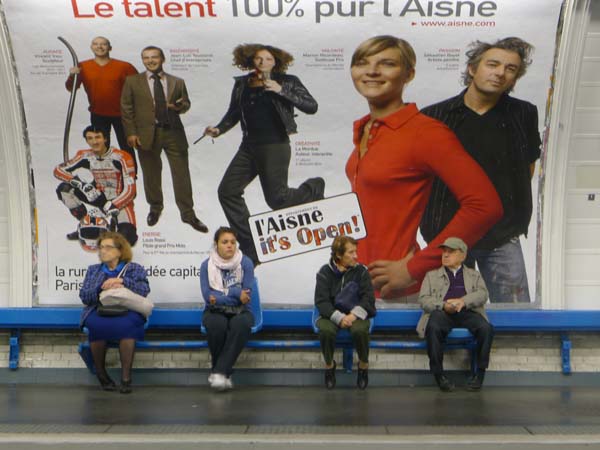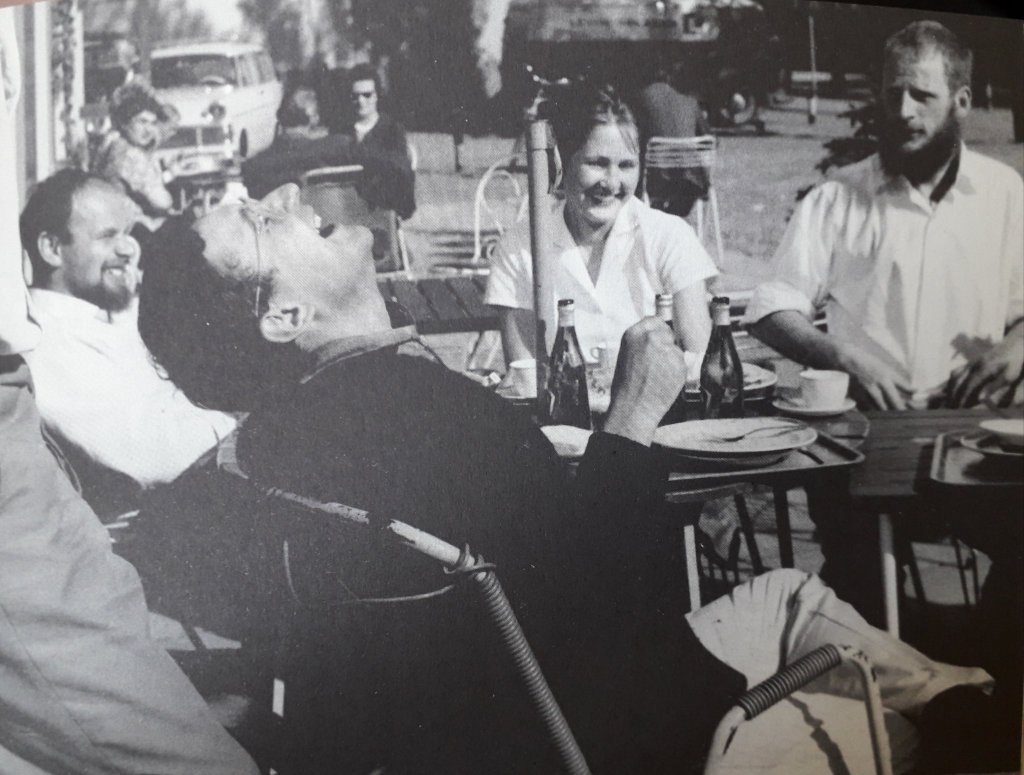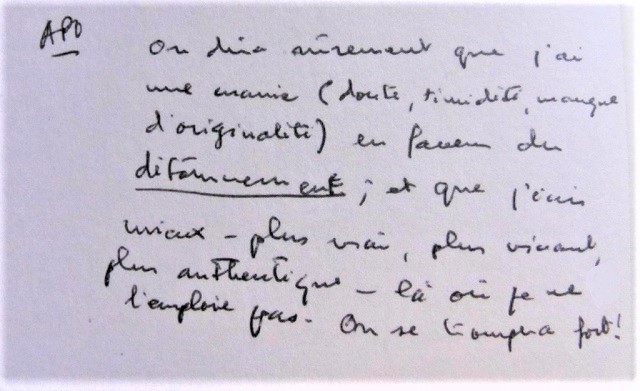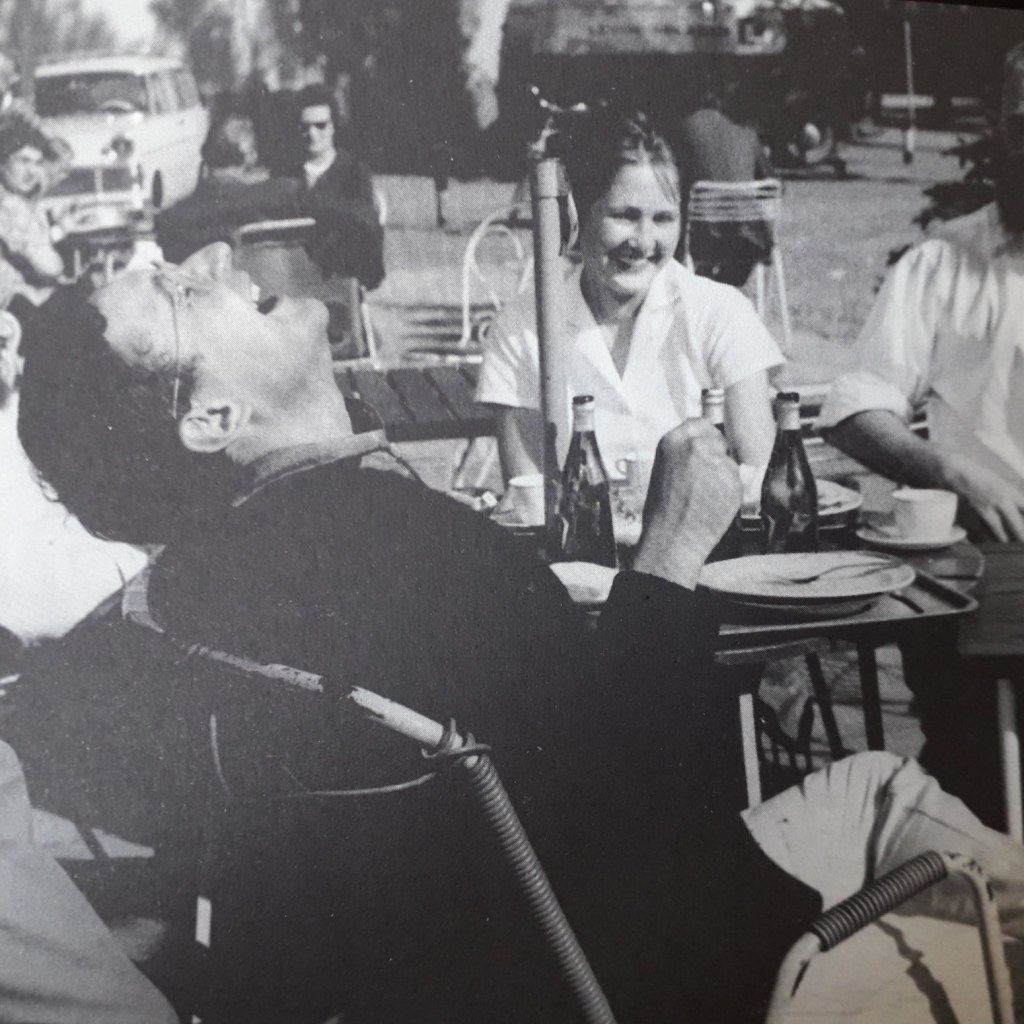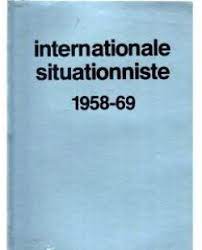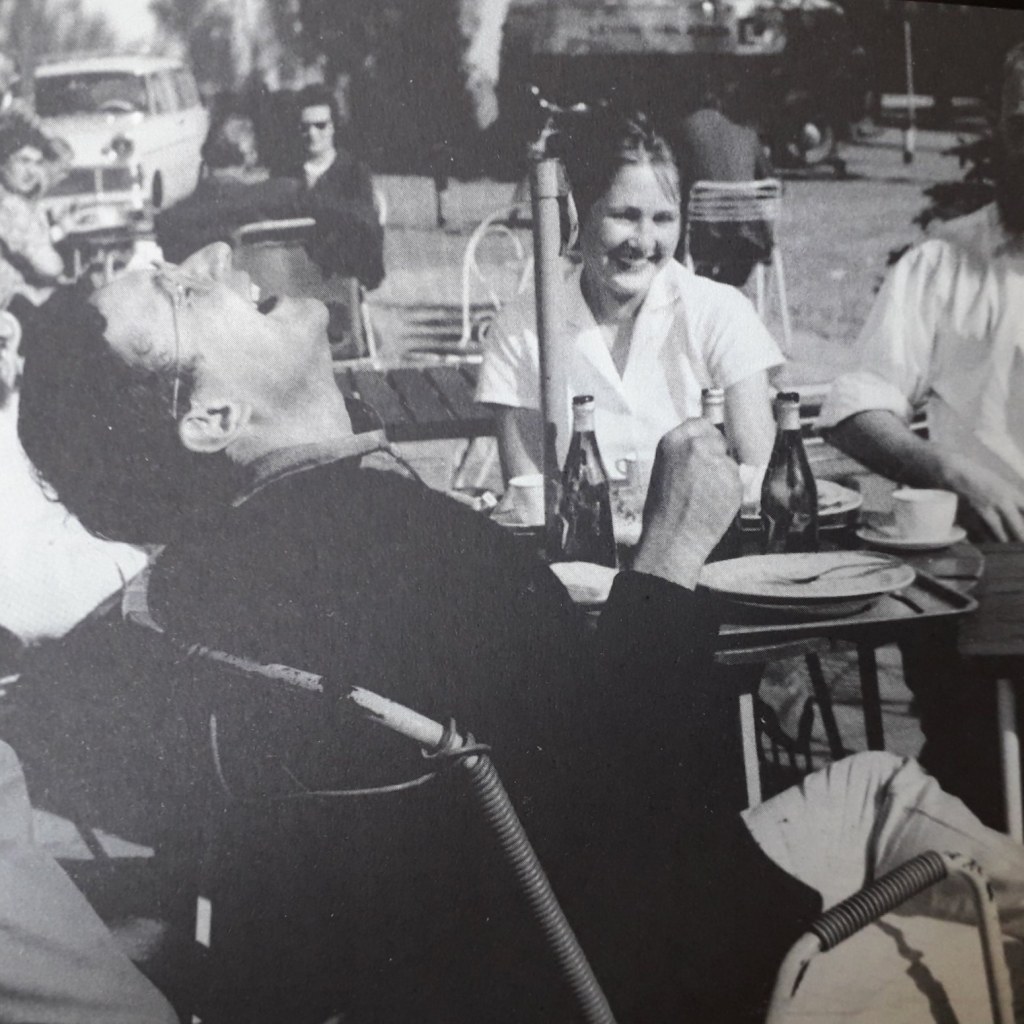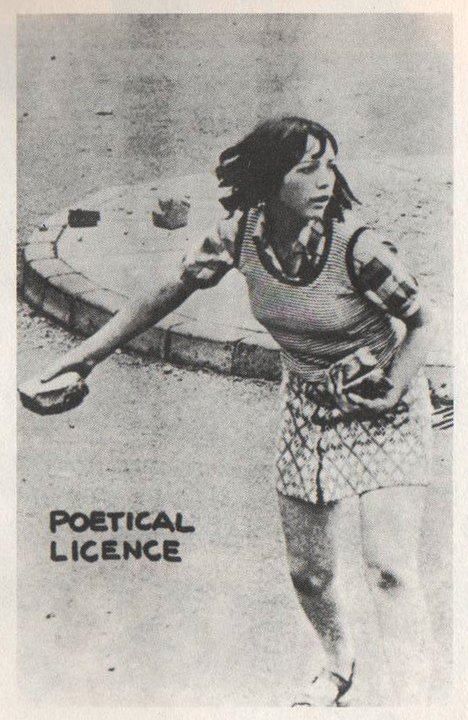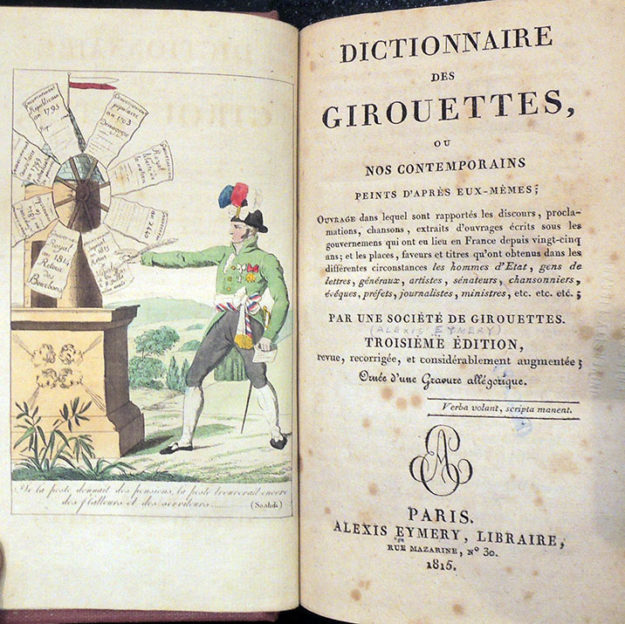
La notion « d’extrême centre » est réapparue sur la scène médiatique, le 18 avril 2022 sur « France Culture », lorsqu’Emmanuel Macron, candidat à un nouveau mandat présidentiel, a ainsi désigné son projet politique.
Le but était clairement de se positionner par rapport à ses adversaires en lice en revendiquant et en assumant d’un même élan une place centrale sur l’échiquier politique avec un triple objectif : unir les courants idéologiques en rassemblant les volontés soumises des partis de droite et de gauche modérés dans un vaste programme d’union nationale, rejeter les oppositions politiques dans les marges du spectre électoral vers les affres de l’extrémisme hyperbolisé, donner une assise conceptuelle pragmatique, une consistance politico-médiatique, aux antipodes des idéologies extrémistes, à un mouvement jusqu’alors nébuleux et coupé des besoins réels du pays.
Ce faisant, le président Macron, en connaissance de cause ou par un sens aiguisé de la survie politique, s’inscrivait dans une tradition politique bien française, née avec la Révolution et l’apparition de ceux qu’on appelait à l’époque « les girouettes » et dont l’historien Pierre Serna, inventeur de l’expression « extrême-centre », a retracé la généalogie dans son livre L’extrême centre ou le poison français : 1789-2019, Champ Vallon, 2019.
Or, quelle est cette tradition politique française dont Emmanuel Macron est le parfait représentant ? Quelles en sont les caractéristiques ?
Tout d’abord l’extrême centre est un mouvement de réaction aux troubles civils et aux périodes de crise en général. Il apparaît en France dans le sillage des guerres de religion, de la Fronde ou du discrédit de la monarchie à la suite de la guerre de Sept Ans.
Les soubresauts de la Révolution – du Gouvernement révolutionnaire à la Restauration en passant par le Directoire et l’Empire – voient également l’émergence de ce type de régime modérantiste qui apparaît comme la planche de salut face au chaos social et politique.
D’autre part, la notion d’extrême centre est un oxymore, le rapprochement de deux termes absolument contradictoires qui constitue le pendant théorique de la politique dite pragmatique du « en même temps » macroniste.
De quoi cette notion est-elle le nom ?
Si l’extrémisme désigne en politique l’excès, la démesure, la passion délirante et donc le désordre, le centre a contrario serait l’incarnation de la modération, du juste milieu, de la raison donc de la mesure et de la norme pour ne pas dire de la normalité ; bref de l’ordre.
Par cette auto proclamation, Macron, d’un même geste, disqualifie par avance toute opposition politique désormais considérée comme pathologique, dangereuse, extrémiste et irresponsable, tout en incarnant un juste milieu rassurant, le camp des modérés, de la raison, le gouvernement des experts et techniciens de la politique, neutres et désintéressés, dépourvus de toute idéologie et de toute passion.
Le centre en se posant en nouvel absolu dépassant les clivages partisans devient le dernier rempart face au chaos, une force d’équilibre indépassable et rassurante s’inscrivant dans une continuité historique et une tradition.
Ainsi les élections législatives de 2022 ont laissé apparaître la fracture tripartite du spectacle politique français, écartelé entre d’un côté une gauche et une droite extrêmes et de l’autre une majorité gouvernementale dite modérée.
Cependant comment concilier la néo-philosophie du changement, du mouvement, de la « révolution en marche » pour reprendre le titre programmatique du candidat Macron en 2017, tout en se revendiquant d’un extrême centre synonyme de consensus, de compromis, de statu quo et par suite d’immobilisme politique?
La phrase du Prince de Salina incarné par Burt Lancaster dans le film de Visconti Le Guépard, face à la tourmente de l’histoire en marche en plein Risorgimento italien nous suggère une piste : « Il faut que tout change pour que rien ne change ».
L’obsession de la réforme, du mouvement, de la marche, du changement, de la révolution disruptive des manières, du langage, des mœurs, de la politique, de l’économie ne serait que le voile illusoire dissimulant, derrière l’agitation de surface, la volonté de ne rien changer, de maintenir le statu quo au profit des intérêts d’une classe dominante, d’une élite.
Dès lors l’extrême centre peut s’entendre non comme le parti du « juste milieu » mais comme celui obéissant à la loi mafieuse du milieu (« La Mafia vient partout au mieux sur le sol de la société moderne. Elle est en croissance aussi rapide que les autres produits du travail par lequel la société du spectaculaire intégré façonne son monde. », Commentaires sur la société du spectacle, Guy Debord) pour sauvegarder ses intérêts de classe, une idéologie, avançant masquée derrière les atours de la raison et de la technocratie dans le seul but dissimulé de museler et même dissuader tout discours contestataire, a fortiori, d’adopter une posture autoritaire au nom de la normalité, de la modération et de la raison dans un scénario politique fragmenté, où la moitié du corps électoral s’abstient désormais de voter, dévoilant ainsi les prémisses, déjà observées de longue date, d’une crise pour le coup radicale de la représentativité démocratique et par conséquent de la légitimité politique qui en découle.
Au cœur de cette défiance populaire à l’égard des élites gouvernantes, s’élargit le fossé toujours plus important entre la légalité et la légitimité, se soldant inévitablement par une domination toujours plus grande exercée par le pouvoir exécutif sur le pouvoir législatif devenu, au détriment de sa fonction représentative prétendue de l’intérêt commun, la simple chambre d’enregistrement d’une minorité.
On reconnaît l’arbre à ses fruits. Or quels sont-ils ?
On l’a vu, la pente naturelle de l’extrême centre est celle d’une politique modérantiste c’est-à-dire modérée car se proclamant rationnelle et raisonnable, se voulant objective, factuelle mais reposant en réalité sur les seuls principes du libéralisme économique envisagé comme l’alpha et l’oméga de l’existence humaine et de l’organisation sociale – mais paradoxalement menée d’une main de fer par un exécutif autoritaire reposant sur quelques constantes identifiables que nous allons rapidement énumérer.
Tout d’abord l’existence d’une « philosophie » de vie, « le girouettisme », justifiant le ralliement obscène de personnalités de tous bords, spécialisées dans le retournement de veste de haut vol (dans tous les sens du terme).
D’autre part une élite de fonctionnaires, de technocrates, de notables et de politiciens qui constituent l’appareil d’état inamovible, l’état profond du pays, insensible aux bourrasques de l’Histoire, assurant ainsi la transition entre les régimes successifs et garantissant la sauvegarde des intérêts d’une oligarchie.
La bureaucratie et l’administration se substituent alors au politique et le règne de l’expert occulte (« le centre directeur est maintenant devenu occulte », Commentaires sur la société du spectacle, Debord, déjà cités), du manager en quête d’efficacité et de rendement, derrière une apparente neutralité factuelle, masque l’idéologie économique sous-jacente.
Un discours de la modération, de l’ordre, de l’intérêt général, qui donc et en résumé assimile toute opposition à un extrémisme, une déviance ou une pathologie pour la criminaliser au nom du monopole de la vérité politique, économique, historique, médicale…
Ce dernier s’accompagne d’ailleurs d’un contrôle du langage et de la pensée par la langue de bois devenue éléments de langage, le politiquement et le culturellement correct à travers des médias, garants de la parole publique, détenus par quelques milliardaires aux ordres du discours officiel, qu’ils soutiennent et dont ils profitent des largesses.
Un contrôle social des corps, de l’espace et du temps au moyen des technologies du moment ou des procédures institutionnelles (état d’urgence ou d’exception permanent, QR codes, confinements, monnaies numériques…), couplé à une répression policière féroce, violente et disproportionnée contre les contestations sociales et politiques, que l’on justifie par la fabrique d’un ennemi intérieur (le non vacciné hier, l’étranger aujourd’hui et demain) ou extérieur (le terroriste, la Russie, etc…).
Enfin la suprématie du pouvoir exécutif (le gouvernement et l’administration, préfectorale notamment) sur le législatif.
En effet le recours permanent à des « conseils de défense », des « conseils scientifiques », des « conventions citoyennes » et en général aux cabinets de conseils occultes en marge de la vie parlementaire signe véritablement l’opacité de la prise de décision et entérine la rupture entre ladite représentation nationale et ledit peuple.
Certes des lois sont votées mais elles apparaissent de plus en plus dictées par les intérêts privés d’une caste aux ordres de puissants lobbies économiques et financiers plutôt que par ceux de la population.
On notera d’ailleurs que le conflit d’intérêt devient la norme et non l’exception du fait de la porosité entre les sphères de la haute fonction publique et de l’État en général et le secteur privé, où d’anciens fonctionnaires ou politiques occupent des postes clés en échange de leurs réseaux et de leurs carnets d’adresses.
Le recours aux ordonnances pour gouverner, comme lors de la crise covid, les limitations des débats parlementaires par des subterfuges techniques permettant le passage en force des lois au moyen de l’article 49.3 et autres tours d’illusionnisme, comme lors de la « réforme des retraites », passée publiquement en contrebande dans la loi de finance annuelle, alors qu’il s’agit d’une réforme structurelle, le mépris et le dénigrement des corps intermédiaires et de la démocratie sociale, dont on décourage par une répression violente les manifestations publiques, la suppression du recrutement du corps diplomatique par voie de concours au profit de nominations issues du seul fait du prince, etc. ; tout cela est le symptôme à la fois d’une dérive d’un pouvoir drogué à sa propre démesure, grisé et fasciné par l’illusion de sa puissance et, d’autre part, d’une logique de caste dont les décisions, coupées de l’intérêt général du pays réel, ne sont que le reflet des intérêts d’une nouvelle féodalité méprisant une classe de roturiers de plus en plus considérés, de façon décomplexée, moins comme des citoyens que comme des sujets.
L’intérêt de cette notion d’extrême centre est au fond de mettre, certes, en perspective le macronisme au regard du passé, pour en saisir les constantes derrière les aléas de l’Histoire mais aussi, en l’élargissant au monde libéral en général, de comprendre la trame invisible qui traverse celui-ci.
La mondialisation, favorisée par la révolution informatique ayant permis la maîtrise de l’espace-temps et donc conféré le don d’ubiquité aux élites, l’émergence de ladite « intelligence artificielle » ainsi que les recherches médicales laissant aux plus fortunés l’espérance d’une domestication de la mort, enfin l’espoir fou de découvrir de nouvelles sources d’énergies inépuisables, tout cela a conféré aux oligarques une puissance inégalée dans l’histoire, au point de leur donner un sentiment ultime de surpuissance dont les conséquences sont à présent tangibles.
En effet, la puissance, entendue comme la soumission de la réalité à la volonté, donne l’illusion, du fait de la maîtrise technologique rendue possible par l’extrême richesse de quelques-uns dans un monde devenu périphérique, que tout désir non naturel est réalisable.
Nous assistons donc à la naissance d’une caste de demi-dieux, qui, emportés par l’ivresse technologique que leur octroient leurs fortunes colossales, peuvent envisager de distinguer, au sein de la société, les êtres essentiels de ceux non essentiels – pour se passer d’une partie de l’humanité désormais superflue et coûteuse.
Désormais le peuple est et sera de trop, d’abord par morceaux, puis en vrac, puis en totalité. Les volontaires de la servitude ne chanteront donc plus très longtemps les louanges de leur veulerie.
Que l’on songe par exemple, au lendemain de la seconde guerre mondiale, au détournement des résultats des élections au profit de la démocratie chrétienne en Italie ou à l’éviction brutale de Silvio Berlusconi régulièrement élu et remplacé par ce qu’on nomma un gouvernement technique, c’est à dire non élu, dirigé par un ancien banquier d’affaire, Mario Monti, ou au dernier gouvernement technique en place sous la houlette de Mario Draghi, autre banquier d’affaire ; que l’on songe au détournement des résultats du référendum français de 2005, sur l’établissement d’une constitution européenne, par le vote en 2008, par les parlementaires français, du traité de Lisbonne qui entérine la constitution européenne; que l’on songe au renoncement des gouvernements européens, en général, à tout référendum, par méfiance viscérale envers les peuples qu’elle préfère gouverner par circulaires sans jamais en retour rendre de compte ; que l’on songe à Tsipras en Grèce soumis au diktat européen contre la volonté des Grecs qui l’avaient porté au pouvoir; que l’on songe à la répression des « gilets jaunes », que l’on songe aux tirs à balles réelles aux Pays bas pour réprimer les contestations sociales des agriculteurs ; que l’on songe à la gouvernance de la commission européenne aux accents de plus en plus autoritaires, pesant de tout son poids sur la politique de santé des états membres durant la crise covid, tant au niveau des mesures préconisées que de l’opacité entourant par exemple les contrats avec les grands groupes pharmaceutiques, gouvernance à présent érigée en modèle par l’OMS, prémisse d’un biopouvoir assurant son emprise sur les corps ; que l’on songe à la politique étrangère de la commission européenne, qui, se substituant aux états, engage les nations européennes, dans le cadre du conflit ukrainien, dans un bras de fer avec la Russie, et ce, sans le consentement des peuples, ni aucun mandat de leur part, au risque de mettre le doigt dans un engrenage fatal, tant au niveau économique que militaire ; songeons enfin, au moment où les peuples, peu à peu, prennent conscience de l’accélération d’un agenda visant à les museler définitivement et de la lente mais sûre orwellisation du continent européen, songeons enfin, à la mise en place d’un euro et d’une identité numériques dont la fonction sera de tracer les modes de vie et comportements individuels (en plus d’être l’occasion d’un commerce juteux des données numériques auprès des acteurs économiques) mais surtout de sanctionner tout dissident en bloquant le compte bancaire de toute personne s’écartant de la norme instituée : surconsommation de carbone, d’eau, d’énergie, rationnements en tout genre, idées politiques déviantes, injonctions sanitaires.
A ce titre, les grèves des routiers contre la vaccination obligatoire au Canada, dont les acteurs ont vu leurs comptes bancaires bloqués et leur outil de travail confisqué, ont été le laboratoire expérimental de cet extrême centre qui s’emploie à la rééducation économique permanente des peuples.
La prison numérique qui se profile sera le pendant abstrait des camps d’internement mis en place en Australie pour les non vaccinés durant la crise covid.
L’idéologie panoptique (voir sans être vu), idéologie de surveillance totale de l’individu, physique, psychique et langagière, a trouvé les moyens techniques de sa mise en œuvre effective au nom d’un état qui nous veut du bien et qui, pour ce dessein impérieux, prépare la dissolution des dissidents.
L’extrême centre, dont le président Macron est le chantre, peu à peu, prépare le terrain, en France, comme en Europe et plus largement en Occident comme en Orient, à l’avènement d’un fascisme en col blanc, à présent ouvertement assumé et décomplexé, technocratique, où la contrainte sera la norme et la liberté l’exception, un régime fondé sur des appareils juridiques, policiers et médiatiques aux ordres du marché néo libéral et de ses sbires idéologiques, un fascisme, bizarrerie de l’Histoire, sans le peuple, désormais dissous, invisibilisé, sorti des statistiques puisque dans un tel régime, un simple voyant rouge suffira à bloquer un compte pour tenir en laisse et museler tout opposant ou le transformer en un paria social.
Au temps de Franco, comme en Chine aujourd’hui, quiconque n’avait pas sa carte du parti, ne pouvait accéder aux biens de première nécessité ni à aucune activité sociale. L’extrême centre est bel et bien un fascisme qui instaurera, comme mode de gouvernement, la mort sociale des opposants au système, traités désormais comme des déviants à rééduquer. Le saut technologique de la carte d’identité en papier au QR code aura initié ce saut qualitatif vers l’effacement de toute voix discordante.
Le glacis du spectaculaire intégré s’apprête à recouvrir le monde dans la passivité et l’indifférence générales. Ses caractéristiques selon Guy Debord : l’obsession technologique, la soumission totale du politique à l’économique, la fusion du vrai et du faux, l’incitation à vivre dans un présent perpétuel, sans mémoire ni mise en perspective historique, enfin la fascination pour le secret et sa mise en scène : « Le centre directeur est maintenant devenu occulte (…) Le spectacle s’est mélangé à toute réalité, en l’irradiant », Commentaires sur la société du spectacle, déjà cités).
On se posera la question suivante : si l’Europe n’a certes pas inventé la tyrannie et le despotisme, plaies communes et également réparties sur le globe tout au long de l’histoire, comment se fait-il qu’en son sein, soient nés les totalitarismes de toute obédience, de droite, de gauche, du transhumanisme en marche ou de la nouvelle idéologie du Greenwashing (les cimetières du vivant repeints en vert par le capitalisme bon teint) ? Il semble que l’extrême centre soit une synthèse de ces idéologies extrêmes pour lesquelles l’homme et le peuple semblent être toujours de trop.
Car en effet, de quoi l’extrême centre est-il le nom sinon d’un miroir aux alouettes, d’un théâtre d’ombres chinoises masquant l’idéologie autoritaire d’une oligarchie prête à tout pour sauvegarder sa position dominante et ses intérêts. Une nouvelle féodalité impensée émerge sous nos yeux, dont le dieu est l’argent, avec ses gueux et ses serfs, sans chevaliers, ni panache mais avec ses seigneurs, leurs lois et leurs cours d’hommes en gris.


